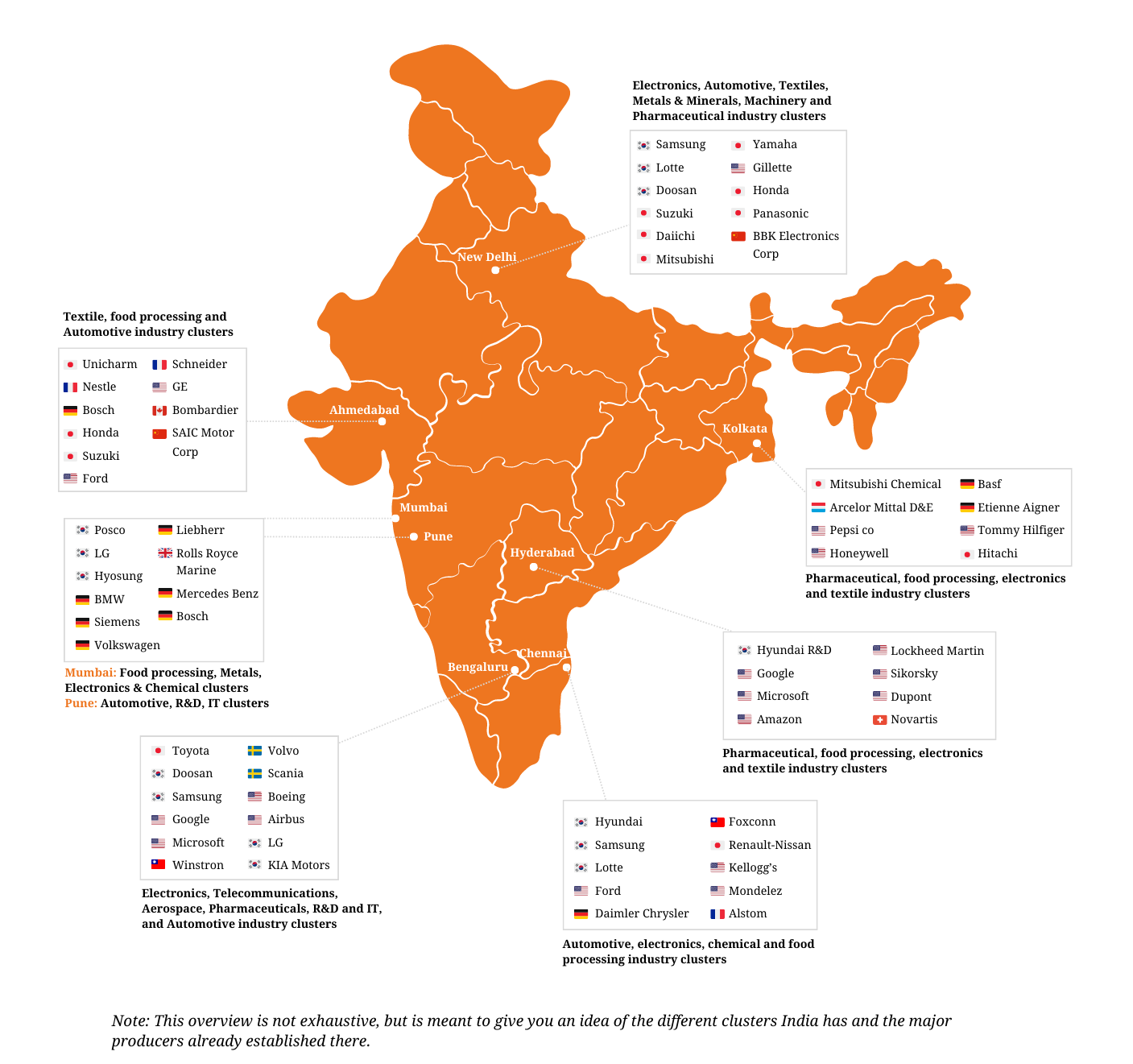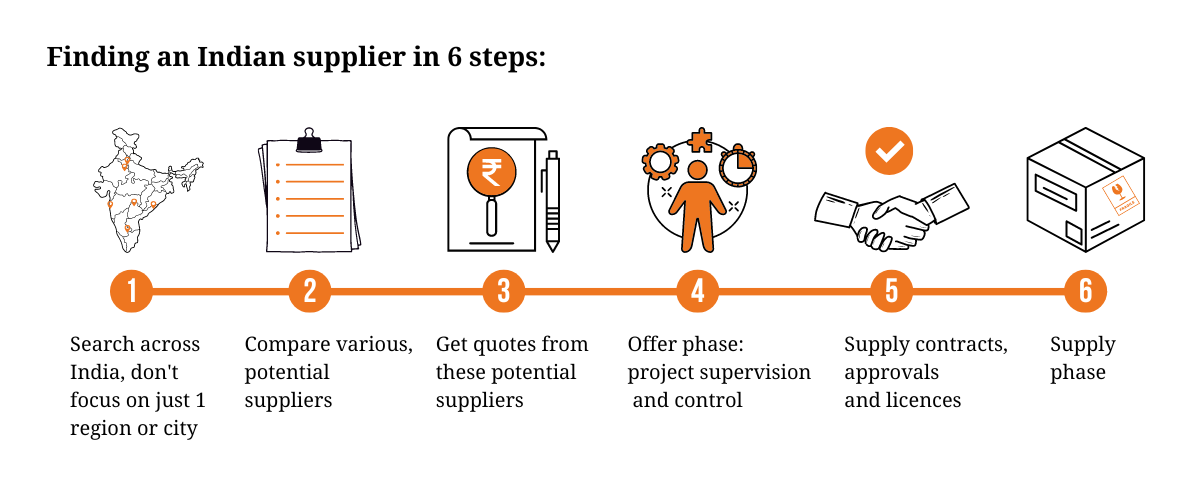India has become one of the world's leading manufacturing centers in the past decade. The Indian government has invested heavily in developing the industrial sector with the result that India's automotive, aerospace, IT and pharmaceutical (think vaccines) sectors now produce for the entire world. In addition, India offers access to a wide availability of raw materials and costs are lower than in China. The country therefore offers a lot of interesting opportunities for European companies looking to outsource their production.
Finding the right production site in India
Many companies see India as one country, but India is incredibly large and diverse. India is better approached as a continent, like Europe. Therefore, to find a good producer, it is smart to do or have a thorough location analysis done. India has manufacturing clusters in which companies of a specific sector are located. Several clusters of each sector exist in the states where the best materials, infrastructure and personnel can be found for this industry. For example, the auto industry has four major clusters in Gujarat and around the cities of Chennai, Pune and New Delhi.
Companies should not focus on these clusters, but look at all options across India. Sometimes the options outside these clusters are more advantageous because, for example, wages are lower outside the cities. Once it is determined which locations meet the needs, a list of potential suppliers and manufacturers in these regions can be made.
An Indian partner with experience
To ensure the desired specifications and quality, a potential supplier must have the right expertise and experience within the sector in which the European company operates. It is also necessary to check whether quality systems are in place, what the annual output is and whether the supplier has enough experience in exporting the product.
If you have little experience doing business in India, it is advisable to hire a local consultant for this step. They know exactly what legal requirements products must meet and what permits are needed to produce and ship your products.
Quality control
From the list of potential candidates, after extensive evaluation, the three to five best options for the industry and product are chosen. With these producers, the European company then goes deeper into the opportunities offered by the producer. In this step, it is advisable to schedule a visit to the production facility, or, if a visit is not possible, to organize a video call to get an even better idea of the process and quality of the products manufactured there. Once the selection is narrowed down to 1 manufacturing company, a quote can be requested so that price and terms can be negotiated.
Keep in mind that a factory in India usually looks different than in Europe. This does not mean that the products being delivered are also of inferior quality. Often factories in India are more simply furnished, and there is no air conditioning, for example, but the machines are of the same caliber as in Europe.
Once there is agreement with the manufacturer on the price and terms, samples can be made. The key here is that the European company has people available in India who can check the manufacturing process and quality before it is checked again in Europe.
If everything is satisfactory, the first batch can be manufactured. Even though the new supplier has already been screened in various ways, it is then advisable to have quality control checks done every year or even more frequently.
Protecting your Intellectual Property
When outsourcing your manufacturing to a partner in another country, you want to make sure your intellectual property (IP) is well protected. India has been a member of WIPO (World Intellectual Property Organization) for nearly 50 years, which means that most intellectual property laws in India meet international standards.
In our IP manual, you will read not only how your intellectual property is legally protected in India, but also what you can do and have documented yourself to protect your IP if you will be working with an Indian partner.


